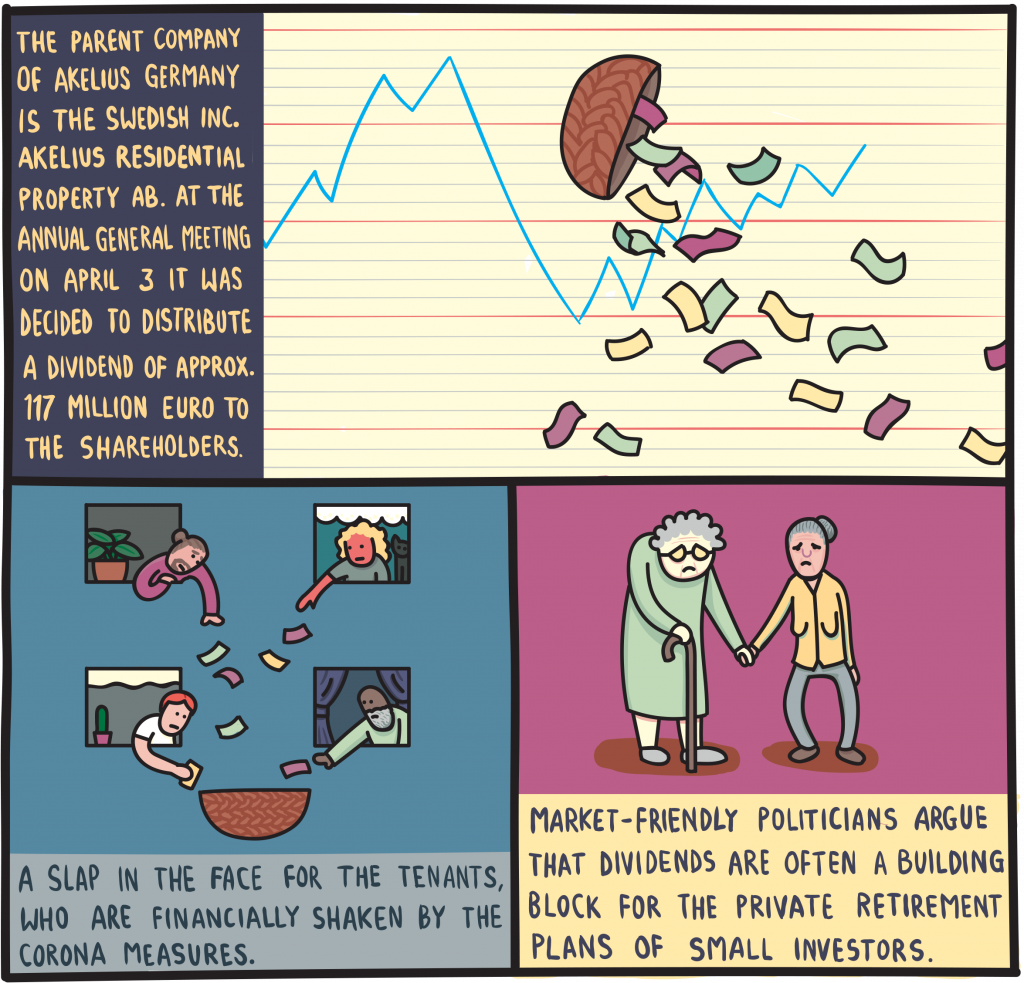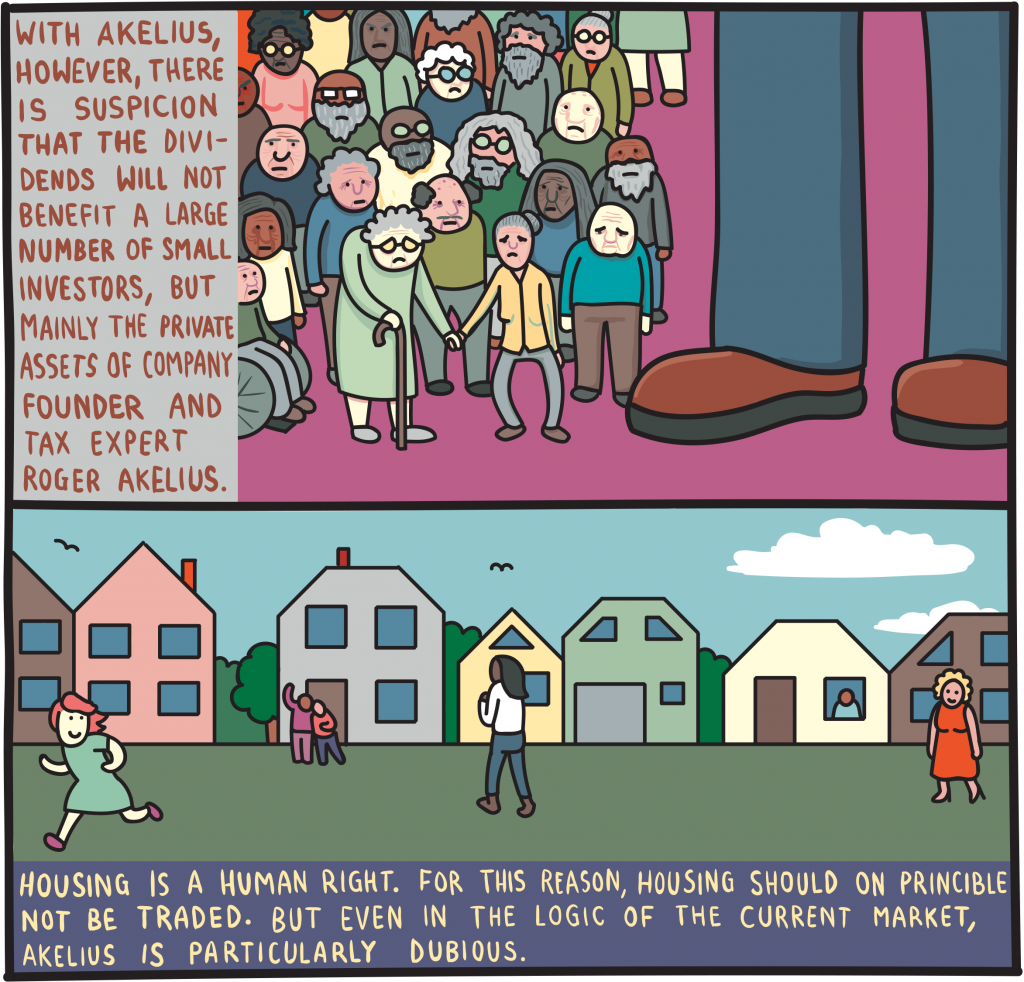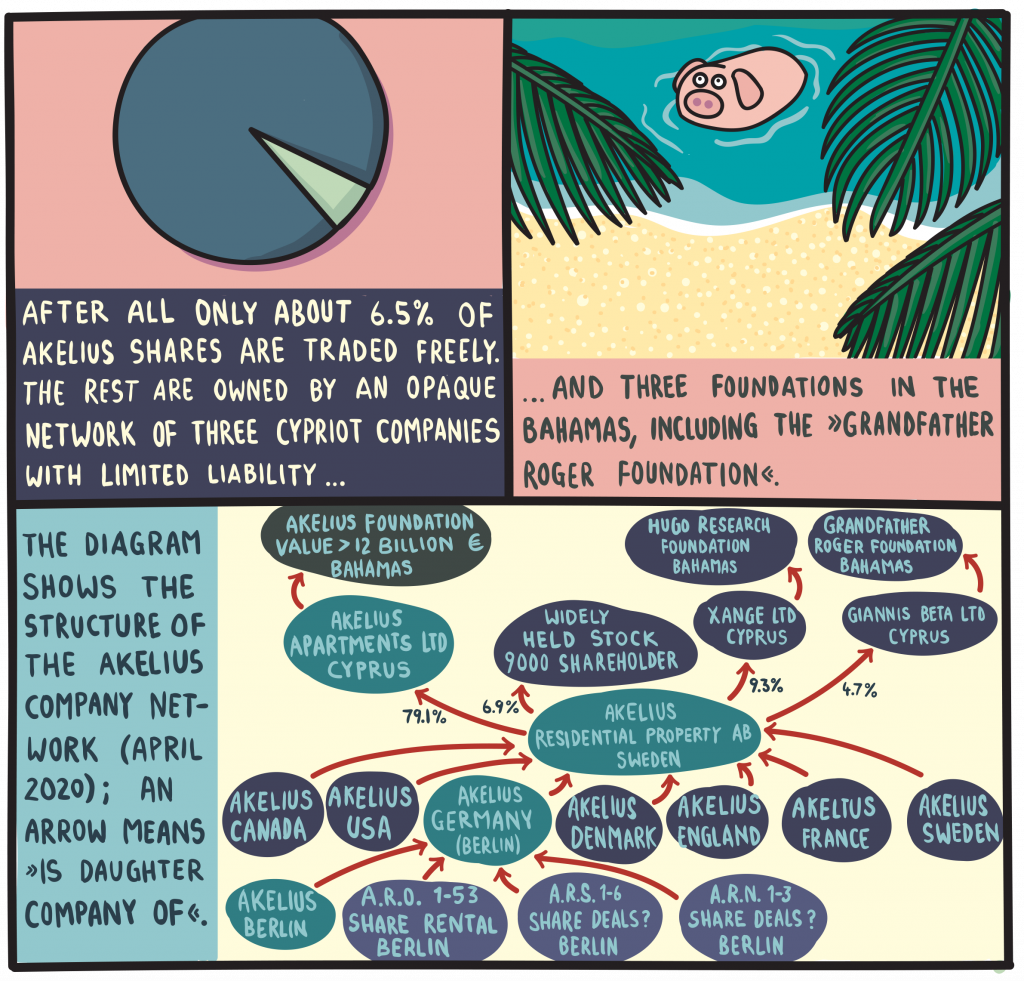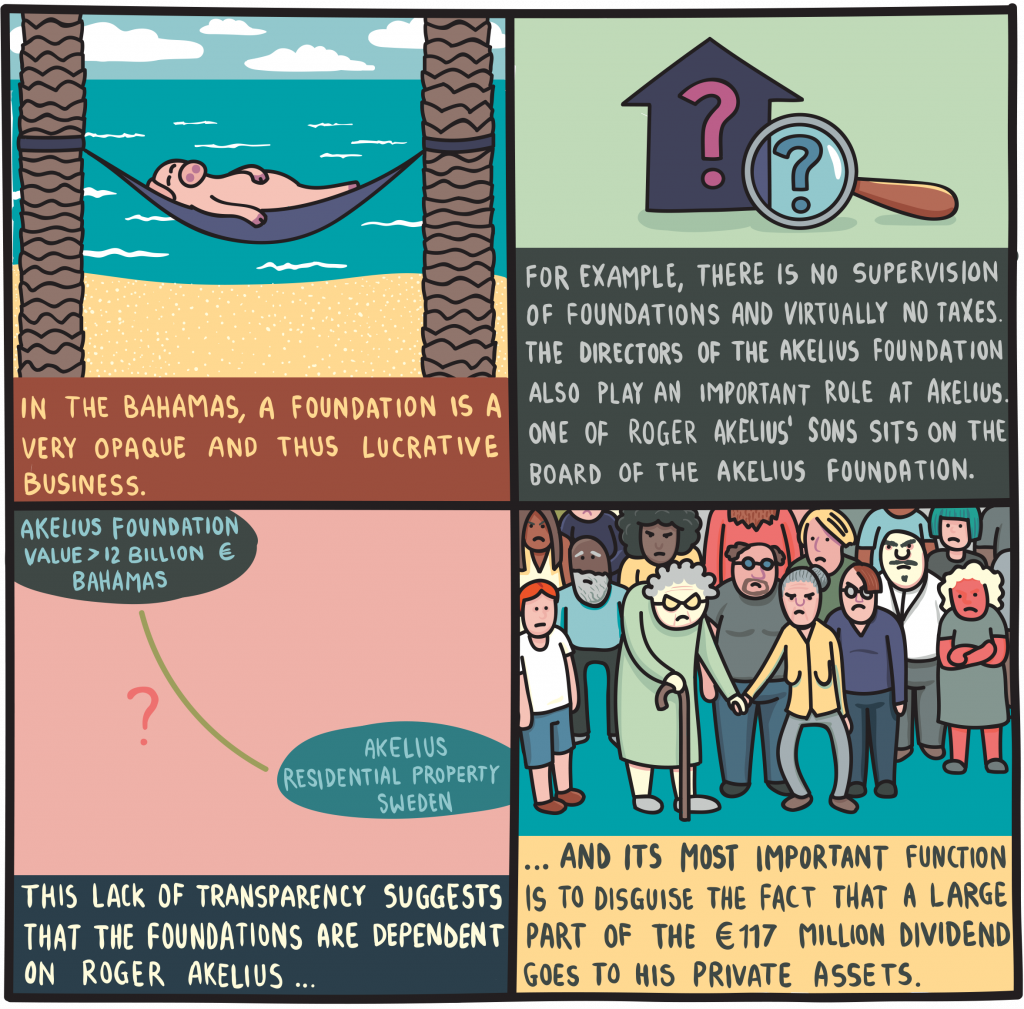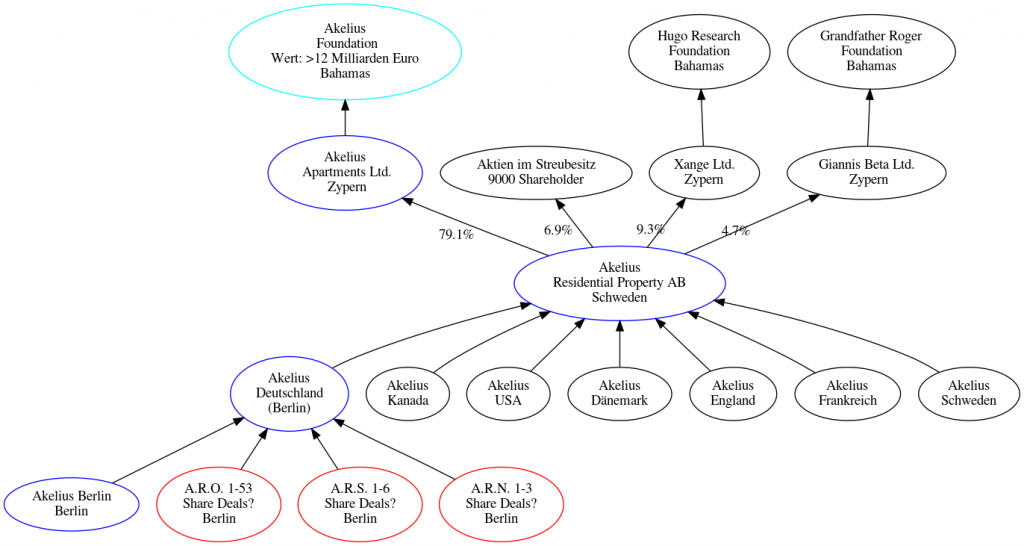English version see below
Das Menschenrecht auf Wohnen ist auch immer ein Thema der Frauen. Statement der Vernetzung der Akelius-Mieter:innen zum Internationalen Frauentag am 8. März 2021
Der 8. März – internationaler Frauentag – ist seit einem Jahr in Berlin Feiertag. Das ist ein Erfolg, aber bei weitem kein Grund zum Ausruhen. Wir leben noch immer in einer Gesellschaft, in der Frauen in ihrer Lebenspraxis nicht gleichberechtigt sind. Das lässt sich auch an der Wohnungsfrage ablesen. Sie spiegelt in besonderem Maße die in unserer Gesellschaft herrschenden Machtstrukturen wider.
Aufgrund der Lohnungerechtigkeit sind Frauen von steigenden Mieten stärker belastet. Das trifft sowohl bei der Wohnungssuche als auch bei der Mieterhöhung zu. Bei steigenden Angebotsmieten scheiden als erstes die Bewerber:innen mit den niedrigeren Einkommen aus. Bei Mieterhöhungen ist die Belastbarkeitsgrenze für Einkommensbenachteiligte schneller erreicht.
Frauen als Mütter müssen nicht nur für sich, sondern auch für ihre Kinder sorgen. Sie müssen unter den Bedingungen der Lohnungerechtigkeit sich selbst und ihre Kinder ernähren und für diese das Wohnen mitfinanzieren. Wenn Frauen als Mütter gezwungen sind in Beziehungen zu wohnen, um die Kosten für ihre Kinder zu teilen, dann sind sie keine freien Menschen mehr, sondern aus finanziellen Gründen von ihren Partner:innen abhängig und ihnen ausgeliefert. Und ist eine Frau von häuslicher Gewalt betroffen, hat sie wegen ihrer Benachteiligung auf dem Wohnungsmarkt meist nicht die freie Wahl zu gehen.
Frauen sind sich dieser Benachteiligung durchaus bewusst. Vor allem jüngere Frauen wehren sich immer entschiedener gegen diese Ungerechtigkeit. Beim Thema Wohnen fragen sich unsere kleinen Schwestern, unsere Töchter, unser Enkeltöchter zurecht, warum sie Kinder in diese Welt setzen sollen, in der nicht einmal das Dach über dem eigenen Kopf sicher ist. Warum sollen sie sich selbst und ihre Kinder dieser erhöhten Gefahr, Abhängigkeit und Angreifbarkeit aussetzen? Immer mehr junge Frauen treten unter anderen auch deshalb in den Gebärstreik.

Über die Akelius Foundation arbeitet Akelius mit der UNICEF zusammen. Eines der Hauptziele von UNICEF ist die Durchsetzung von Gender Equality (Gendergerechtigkeit). Die UNICEF hat deshalb ein Programm zur Förderung von Mädchen und Frauen, das alle Tätigkeitsbereiche der UNICEF betrifft. Wenn die Akelius Foundation die Förderung von „Gender Rights“ ausschließt, dann wendet sie sich damit aktiv gegen die Förderung von Frauen und Mädchen – ein Antifeminismus, der laut UNICEF gerade auch denen schadet, denen die Akelius Foundation angeblich helfen will: den Kindern. Besonders Mädchen und junge Frauen sind von Benachteiligung und Gewalt betroffen. Das antifeministische Programm der Akelius Foundation korrespondiert mit der Patriarchenrolle des Firmengründers Roger Akelius, der sein Foto auf dem Spielbrett einer für UNICEF entwickelten Sprachlernapp eingestanzt hat. Dadurch wird die sogenannte Wohltat für Kinder in Not nur ein Werbespot.
Die Vernetzung der Akelius-Mieter:innen fordert daher die Aufhebung der Geschlechterungerechtigkeit und die Vergesellschaftung von Akelius & Co. und erklärt sich solidarisch mit den für Emanzipation kämpfenden Frauen und allen Unterdrückten und Diskriminierten.
English version
Struggle for housing is gender struggle
The human right to housing is also always a women’s issue. Statement of the Akelius Tenants‘ Network on International Women’s Day on March 8, 2021
March 8 – International Women’s Day – has been a public holiday in Berlin since last year. This is a success, but by no means a reason to relax. We still live in a society in which women do not have equal rights in their daily lives. This is also evident in housing issues, which are particular reflections of the power structures that prevail in our society.
Due to wage inequity, women are more affected by rising rents. This is true both in the search for housing and in rent increases. When the rents for available apartments rise, the applicants with the lower incomes are the first to be eliminated. In the case of rent increases, the limit of the ability to bear the burden is reached more quickly for those with lower incomes.
As mothers, women have to provide not only for themselves but also for their children. They must feed themselves and their children under conditions of wage inequity and pay for housing for them as well. If women as mothers are forced to live in relationships in order to share the costs of their children, then they are no longer free people, but dependent on and at the mercy of their partners for financial reasons. And if a woman is affected by domestic violence, she usually does not have the free choice to leave because of her discrimination on the housing market.
Women are well aware of this discrimination. Younger women, in particular, are increasingly vocal in their opposition to this injustice. When it comes to housing, our little sisters, our daughters, our granddaughters rightly wonder why they should bring children into this world in which they can’t even be sure of the roof over their own heads. Why should they expose themselves and their children to this increased danger, dependence and vulnerability? This is one of the reasons why more and more young women are going on birth strike.
The real estate company Akelius is partly responsible for the fact that asking rents in Berlin have exploded and affordable housing has been destroyed. Instead of treating the renting of housing as a matter of basic needs, Akelius is fostering the law of the survival of the fittest. Because of the structural discrimination against women, this is far too often done at their expense. This alone shows that Akelius upholds the oppression of women. But Akelius also explicitly positions itself against the emancipation and equality of women by explicitly excluding the funding of “ Gender Rights“ projects by the Akelius Foundation.

Through the Akelius Foundation, Akelius collaborates with UNICEF. One of UNICEF’s main goals is to enforce Gender Equality. UNICEF therefore has a program for the promotion of girls and women that affects all areas of UNICEF’s activities. When the Akelius Foundation excludes the promotion of Gender Rights, it is actively opposing the promotion of women and girls – an anti-feminism that, according to UNICEF, also harms the very people the Akelius Foundation claims to be helping: children. Girls and young women are particularly affected by discrimination and violence. The Akelius Foundation’s anti-feminist program corresponds with the patriarchal role of company founder Roger Akelius, who has his photo stamped on the board of a language learning app developed for UNICEF. This makes the so-called benefit for children in need nothing more than a commercial.
The network of Akelius tenants therefore demands the abolition of gender injustice and the socialization of Akelius & Co. and declares its solidarity with women fighting for emancipation and with all people who are oppressed and discriminated against.

